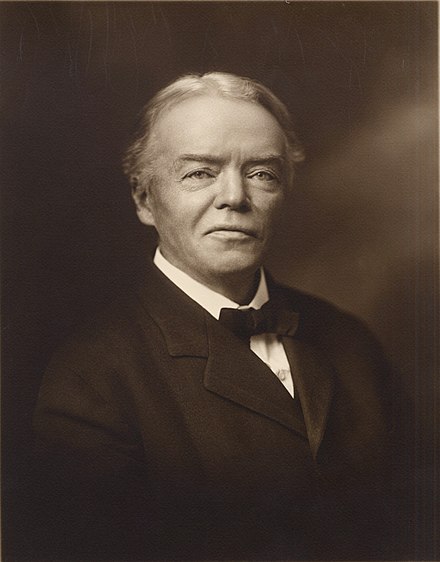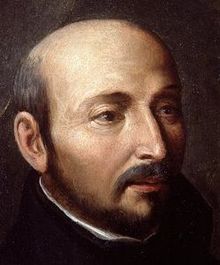
Josiah Royce.
(Image by Wikipedia (commons.wikimedia.org), Author: Unknown author) Details Source DMCA
Duluth, Minnesota (OpEdNews) July 31, 2023: For a period of time in my life (1979-1987), I was in the Jesuit order (known formally as the Society of Jesus). It was founded by the Spanish Renaissance mystic St. Ignatius Loyola (1491-1556), the author of the famous Spiritual Exercises - which all Jesuit novices follow in making a 30-day retreat in silence (except for the daily conferences with the retreat director). He died on July 31, 1556 - and so July 31st is his feast day.
Today, the National Catholic Reporter website features an appropriate article titled "Learning humility the hard way: Ignatius of Loyola's path to virtue" by the lay American Catholic church historian Christopher M. Bellitto (born in 1965; Ph.D. in medieval history, Fordham University) of Kean University in Union, New Jersey:
Bellitto's article is adapted from his new 2023 book Humility: The Secret History of a Lost Virtue (Georgetown University Press).
In Bellitto's article, he recounts major turning points in the life of the man known as St. Ignatius Loyola.
In May 1521, he was seriously wounded in a battle in Pamplona. Up to this time, humility had not been one of his virtues. He was then transported to his family home in the Basque region of Spain. As part of his recovery, he underwent excruciating surgeries.
As part of his recovery from his excruciating surgeries, he began reading "a life of Jesus and a book on the saints translated into Castilian," as Bellitto notes. This reading was a significant turning point in his life - after which he subsequently pursued the spiritual life and began cultivating the virtue of humility, as he actively sought guidance from various spiritual directors. Subsequently, over the years, he began writing himself notes about the movements in his psyche that he interpreted as spiritual movements. In time, the notes he had compiled became his famous Spiritual Exercises - a compilation of terse notes primarily for spiritual directors to use in directing individual persons making retreats.
For a reliable translation, see George E. Ganss, S.J., The Spiritual Exercises of Saint Ignatius: A Translation and Commentary (Institute of Jesuit Sources, 1992).
For a Freudian account of the psychodynamics of St. Ignatius Loyola's conversion, see W. W. Meissner, S.J., M.D., Ignatius of Loyola: The Psychology of a Saint (Yale University Press, 1992).
Subsequently, when Ignatius pursued formal studies to advance his education (in Latin, the lingua franca of the day), he served as the spiritual director of some younger students who made retreats under his direction. Then, in 1540, he and some of his younger companions founded the Society of Jesus (known informally as the Jesuit order).
On July 31, 1556, Ignatius Loyola died.
For a history of the early Jesuits, see the late American Jesuit church historian John W. O'Malley's book The First Jesuits (Harvard University Press, 1993).
Now, in my recent OEN article "Josiah Royce on the Beloved Community" (dated July 29, 2023), I discuss the mature work of Harvard's prolific philosopher Josiah Royce (1855-1916; Ph.D. in philosophy, Johns Hopkins University, 1878), with special attention to his mature work in the philosophy of religion, his 1913 book The Problem of Christianity (Macmillan; expanded edition edited by the late American Jesuit philosopher Frank M. Oppenheim [1925-2020; Ph.D. in philosophy, Saint Louis University, 1962] and published by the Catholic University of America Press, 2001).
(Note: You can view every article as one long page if you sign up as an Advocate Member, or higher).





